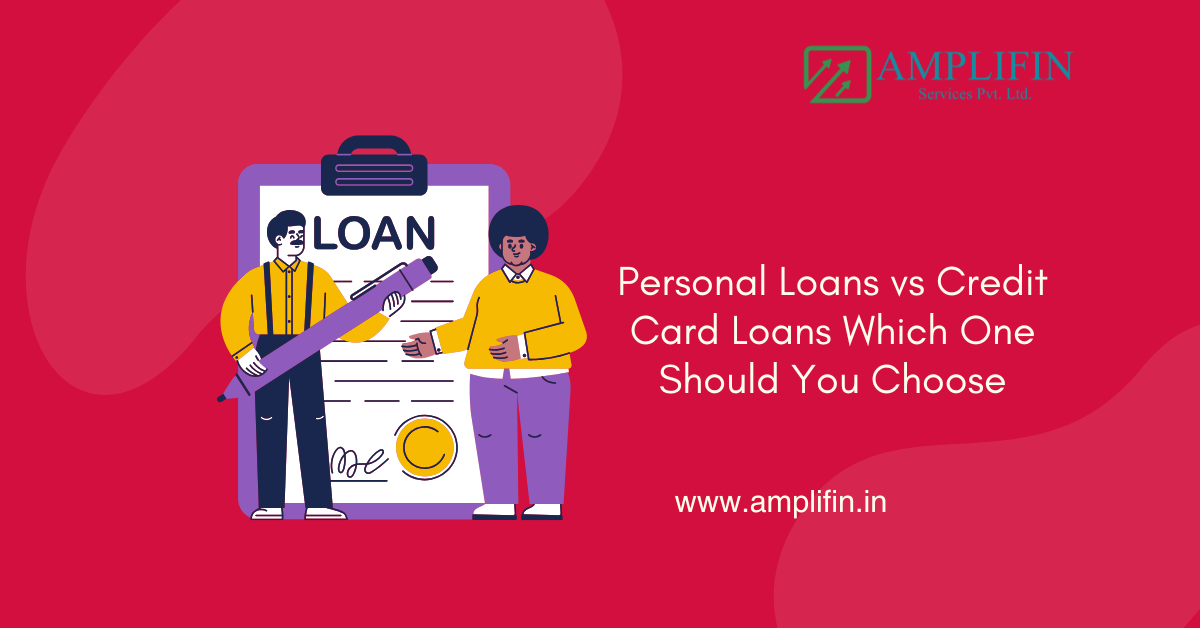Personal Loan vs Credit Card: Which Financial Tool Is Right for You?
Choosing between a personal loan and a credit card can significantly impact your financial future. This comprehensive guide will help you understand the key differences between these two popular financing options, their pros and cons, and how to make the best choice for your specific situation. Whether you’re planning a major purchase, consolidating debt, or simply wanting to understand your financial options better, this article will provide you with the knowledge to make an informed decision.

What’s the Fundamental Difference Between a Personal Loan and a Credit Card?
A personal loan provides a fixed amount of money that you borrow and repay over a set period with fixed monthly payments. In contrast, a credit card is a form of revolving credit where you can continuously borrow up to your credit limit and make variable payments. Personal loans come with structured repayment plans, while credit cards offer more flexibility but require discipline to manage effectively.
How Do Interest Rates Compare Between Personal Loans and Credit Cards?
Interest rates play a crucial role in your borrowing costs. Personal loans typically offer lower interest rates than credit cards, especially for borrowers with good to excellent credit. While credit cards may charge higher interest rates, many credit cards offer introductory 0% APR periods. However, after this promotional period, credit card interest rates can climb significantly higher than personal loan rates.
What Impact Will Each Option Have on Your Credit Score?
Both a personal loan and credit card can affect your credit score in different ways. A personal loan may initially cause a small dip in your credit score due to the hard inquiry, but it can improve your credit score over time through consistent payments. Credit cards influence your credit utilization ratio, which is the percentage of revolving credit you’re using compared to your total available credit. Managing either type of credit responsibly can help improve your credit score.
When Should You Choose a Personal Loan Over a Credit Card?
A personal loan can be a better choice when:
- You need a large, fixed amount for a specific purpose
- You want predictable monthly payments
- You’re looking for lower interest rates than credit cards
- You’re planning debt consolidation
- You prefer a structured repayment plan
The loan application process is typically more involved than applying for a credit card, but personal loans don’t tempt you to overspend like credit cards might.
What Are the Advantages of Using a Credit Card Instead?
Credit cards offer unique benefits that personal loans can’t match:
- Flexibility to borrow as needed up to your credit limit
- Rewards programs (many credit cards offer rewards for purchases)
- Built-in fraud protection
- Convenience for everyday purchases
- Potential 0% APR promotional periods
- No need to apply for new credit for each purchase
How Can You Use Either Option for Debt Consolidation?
Debt consolidation is a common reason people use personal loans or credit cards. A personal loan for debt consolidation can help you combine multiple high-interest debts into a single, lower-interest payment. Credit cards with balance transfer offers can also be effective, especially those offering 0% APR periods. However, it’s crucial to consider the balance transfer fees and your ability to repay the debt before the promotional rate expires.
What Are the Credit Requirements for Each Option?
Both loans and credit cards charge different rates based on your creditworthiness. Personal loans typically require good credit for the best rates, with some lenders requiring a credit score of 670 or higher. Credit card companies may approve applications with lower credit scores, but the credit limit and interest rate will vary significantly based on your credit history. Those with excellent credit have access to the best personal loans and premium rewards credit cards.
How Does the Application Process Differ?
The loan application process is generally more thorough than applying for a credit card. When you apply for a personal loan, lenders review your credit report, income, and debt-to-income ratio. You’ll need to provide documentation and may wait several days for approval. Credit card applications are typically faster, often with instant approval decisions, though they also require a credit check and income verification.
What Are the Hidden Costs and Fees to Consider?
Understanding the full cost of each option is crucial:
Personal Loans:
- Origination fees
- Early repayment penalties
- Late payment fees
- Application fees
Credit Cards:
- Annual fees
- Balance transfer fees
- Cash advance fees
- Foreign transaction fees
- Late payment penalties
How Can You Make the Final Decision Between a Personal Loan and Credit Card?
To choose between a personal loan and a credit card, consider:
- Your specific financial needs
- The amount you need to borrow
- Your credit score
- Your ability to make regular payments
- The urgency of your need
- Whether you prefer fixed or flexible payments
- The total cost of borrowing
Key Points to Remember:
- Personal loans offer fixed interest rates and structured repayment plans
- Credit cards provide more flexibility but typically have higher interest rates
- Your credit score affects your options and rates for both choices
- Personal loans are better for large, one-time expenses
- Credit cards are more suitable for ongoing purchases and building credit
- Debt consolidation can be done with either option
- The loan application process is more involved than credit card applications
- Both options can help improve your credit score when used responsibly
- Consider all fees and terms before making a decision
- Your financial habits and discipline should influence your choice
